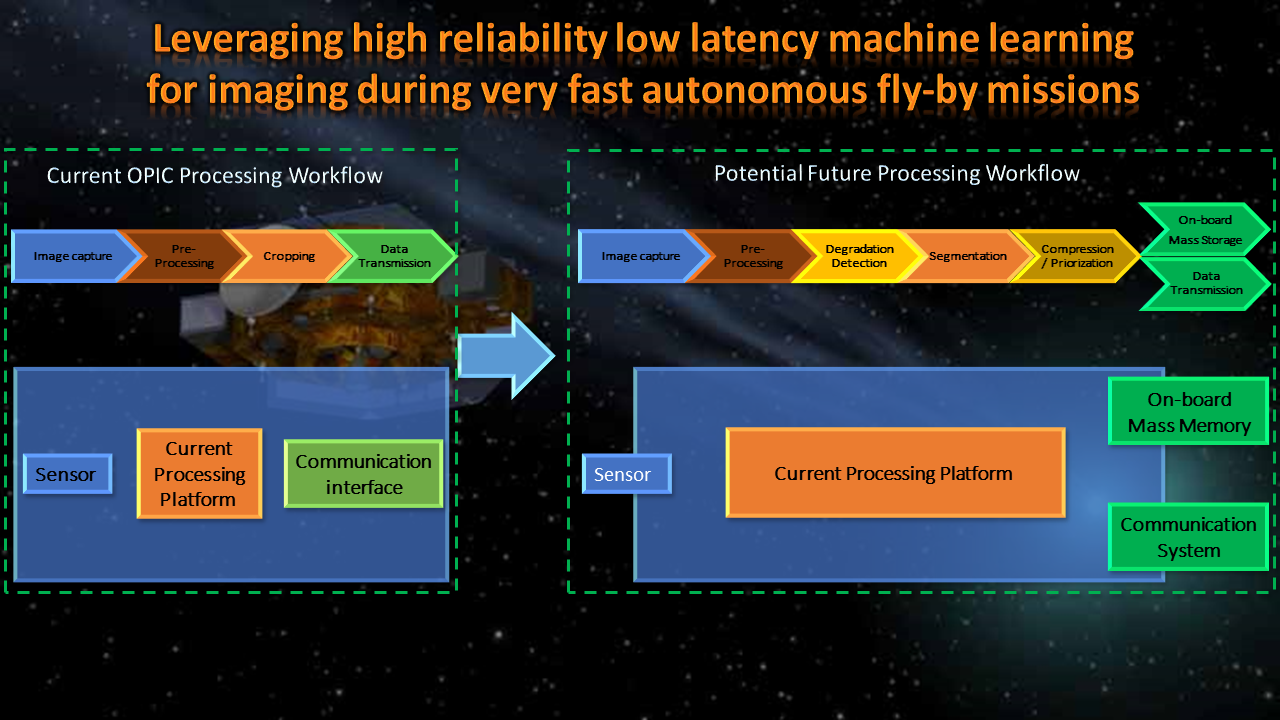Many targets for scientific exploration, planetary protection and space debris removal often allow only a single fast fly-by. A single fly-by implies only a one-time chance of a short time period for data acquisition. Additionally, in these scenarios, data downlink budgets are often limited and the data amount, in some cases even the data rates, can be so high to not allow storage on a mass memory. A solution for this is rapid image pre-selection and data prioritization at sensor data input rate on FPGA (Field Programmable Gate Array). An example of this problem is the Comet Interceptor mission, which will perform a fast fly-by of a yet-to-be-selected dynamically new comet around 2030. OPIC (Optical Periscopic Imager for Comets) instrument on board will capture images of the comet's nucleus at a high frame rate during the very short observation time. This and the risk of loss of mission due to the proximity to the comet requires high processing speeds to process the images and reduce data loss. Additionally, due to the low data budget, only very little data can be transmitted, which requires selecting only the most relevant data within the fly-by time. This project aims to use OPIC as a use case scenario to develop and test novel approaches and compare them to currently used approaches for their applicability in processing the images at the required speed to reduce the data rate. Firstly, for this convolutional, recurrent or other neural networks will be developed to be able to discard unimportant data as well as segment the image into different regions of interest for prioritization or compression purposes. Secondly, these algorithms will be deployed on modern FPGAs, such as Xilinx Versal Edge, Microchip Polarfire, or NanoExplore NG-series, to assess the end-to-end workflow feasibility and the deployed performance, but also find and develop missing capabilities to allow such functionality on future fly-by missions.

